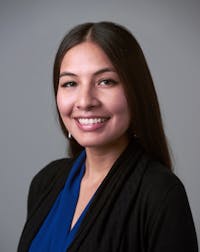Webinar recap: Kiss the Ground's Healing Through Gardening with Dr. Vandana Shiva
Each Wednesday, One Earth will be featuring a webinar recap from organizations and scientists around the world that focus on important topics such as biodiversity, conservation, food justice, and the intersections of environmental and human health.
Kiss the Ground is a NGO increasing societal awareness about the extraordinary benefits of healthy soil. Each week they host conversations that highlight various scientists, activists, and changemakers who are working in regenerative agriculture, environmental conservation, and moving us towards creating a healthy and thriving planet.
This conversation features Dr. Vandana Shiva, Indian scholar, environmental activist, food sovereignty advocate, and anti-globalization author and Farmer Rishi Kumar, a small-scale farmer, sustainability educator and consultant who now works with Kiss the Ground to help more people connect with the hopeful message of regenerative gardening and agriculture.
Shiva starts off by telling us that the coronavirus crisis is forcing humanity to shake the myth of predictability. She did her doctoral studies in the foundations of quantum theory- her thesis “Hidden Variables and Non-locality in Quantum Theory” revealed to her that everything is connected. She states the entire mechanistic industrial ideal of agriculture which assumes total control and total prediction got us into this mess because it assumes there is separation.
Shiva’s dream, starting back in 1987, consists of not letting Monsanto have a monopoly over seed production and not allowing Monsanto pretend they invented the seed. “This illusion is too much of an abuse of creativity and creation of the Earth,” Shiva states. Her commitment now is to all the people who have turned into refugees, she tells them “You are teachers, pass it on so [that] no farmer has to leave their land because they got into debt for chemicals, no farmer has to leave their land because they were forced to grow commodity crops for which they are getting nothing. Farmers are dumping loads of grapes and tomatoes, cash crops they were supposed to get rich on and these crops need a market and when the market crashes they will be the most vulnerable.” With lockdowns in place and millions out of jobs her statement “It’s time to return to the earth and return to food as the foundation of the economy” is a great way to look forward when it comes to the future of food.
Farmer Rishi Kumar follows up by stating that so much of the economy is built up around transient applications that take up so much of our attention we ultimately get distracted from things that are fundamental, like food. Kumar tells the audience that in his experience the garden is all about listening to the plants and soil and he’s heard Shiva reiterate that we have been treating the soil as it’s dead and we’ve been treating the plants like they are dead. He asks, “If the soil we know is alive, the plants are alive, what are they trying to tell us? Why aren’t we listening? Beyond growing food, gardening provides so much nourishment. Why is gardening important to people beyond the food? What else is there in gardening?”
Vandana started a movement called Gardens of Hope, through Navdanya- her NGO that promotes biodiversity conservation and the process of seed saving, after watching farmers growing BT cotton (a genetically modified pest resistant plant cotton variety) committing suicide and seeing their widows losing land and having nothing. In these small villages even the smallest of huts has a little patch of land so Shiva gave these families seeds. Gardens of Hope also went into schools helping kids who were feeling high amounts of pressure in their academic environment. The edible part of a garden is one element, Shiva highlights, but she learned that the kids in schools took away the lesson of “the miracle of abundance.” Shiva exclaims that we as a society have always been made to learn scarcity, every discipline that’s taught to us teaches us scarcity, but the garden teaches abundance. A touching moment is when Shiva tells the audience, “Most importantly I do not know a person who does not find themselves in a garden. You are not doing the earth a favor when you garden, the earth is doing you a favor by saying welcome back child.”
Shiva enthusiastically gives her physics background the credit for the fact that she “didn’t study the rubbish that shapes our mind, written most in the 17th and 18th century.”
Kumar agrees stating that gardening is a great place to see what we are not taught in schools, that the world works in cooperation and community as opposed to us inhabiting a world filled with “competition and domination.” This can be clearly seen today as many community members in California and across the country are relying on community codependence for fruit, vegetables, and baked goods often bartering and trading for what is missing in their kitchen cabinet.
.jpg?auto=compress%2Cformat&w=1440)


